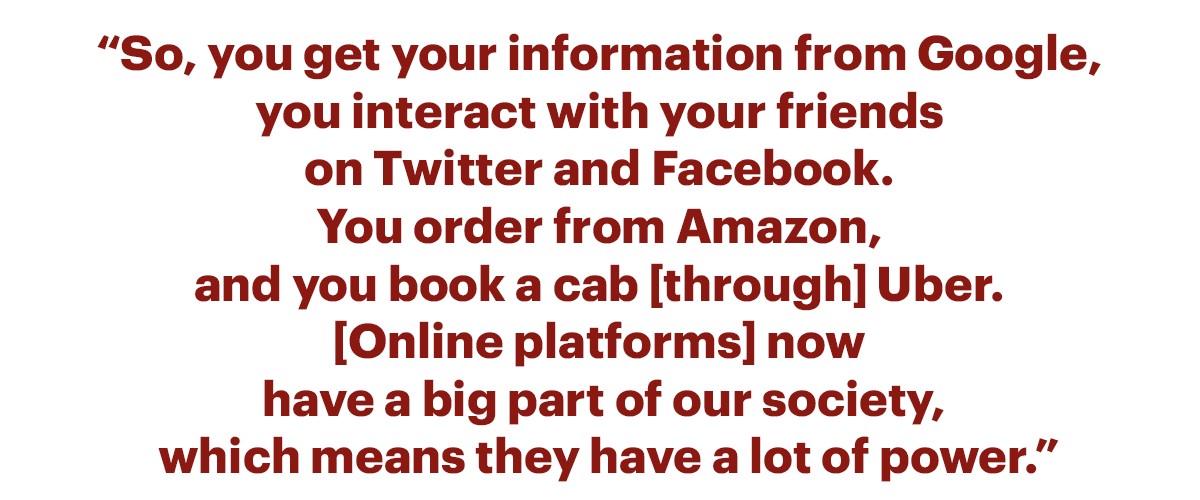Professor Oren Reshef studies digital platforms and social inequality at Washington University in St. Louis’s Olin Business School. In this discussion, Professor Reshef reveals his findings on consumer demand for minority-owned businesses, and how business leaders can celebrate minority leadership for better results and consumer relationships.
This interview has been edited for length and clarity:
Tell us a little bit about what you found in your research on Yelp.
We found that when a business adopts the “Black-owned business” label, we see an increase in demand on basically all margins. We test from page views through “call for more orders” on the platform. These results crucially depend on the identity of the users. For some consumer segments, we see [a] very positive effect. For others, we don't really find very strong effects.
Can you tell us a little bit about where you're seeing the most difference? What findings surprise you the most?
We find that the positive effect is mainly driven by liberal areas with lower anti-Black bias. We were kind of interested in seeing whether this is driven by White users or by Black youth; is this [driven by]Black users interested in supporting Black-owned businesses, or is this a form of allyship? What we find is that the [positive] effects are mostly driven by White users. So, it seems to be more indicative of some allyship of White users wanting to support these minority-owned businesses.
Is this an area of research that you will continue, you going down this path?
We're now developing an additional project with another platform, Wayfair, which is one of the largest furniture online retailers in the country. We were trying to examine more of the mechanisms leading to these positive effects.
How did the murder of George Floyd play into how you came upon this project? Now that time has gone by, how [do you perceive] its influence on your findings?
That is a great question. The initiative was launched in June 2020, which [was] the height of the BLM movement, and a lot of other companies [were] launching similar initiatives. We do think that there is a shift in the population towards supporting more minority-owned businesses. So, we know, for example, from past research conducted ten years ago, that [there was] actually discrimination against these businesses. We've seen the evidence, on eBay or Airbnb. Today, we're actually kind of seeing a shift towards supporting these businesses. And, I imagine this trend will amplify over time, or, at least, I hope it does.
What would you say are some of the takeaways for business leaders? If you are speaking to companies, like Yelp, Uber, [or] Airbnb, and any other big platforms, what are your two or three takeaways for them?
So, I think the first main takeaway is that there is some pent-up demand for minority-owned businesses. It really depends on your consumer base. [We] see these effects [in] particular segments, not so much [in] others. The last thing that I'll say, and this is something we hypothesize, and we intend to explore with the Wayfair project, is how do you design the mechanism to reveal information?
So, in our setting, users had to work to learn about the race of the business owner. It turns out that different designs lead to different outcomes: from helping minority-owned businesses to potentially hurting them.
So, if you're looking at the design, does that also have an implication for who's designing?
That is a good question. I will be a little agnostic about that. So, we don't know yet.
Why are the stakes so high today in the digital world?
These online platforms have now taken a big part of the economy. So, you get your information from Google, you interact with your friends on Twitter and Facebook. You order from Amazon, and you book a cab [through] Uber. So, they now have a big part of our society, which means they have a lot of power.
And I would say [that they're] even [the] responsible party to support these minority-owned businesses.
So, this is, I think, an important and timely area, because given all these important social movements that we see, namely the BLM movement, there's growing consumer demand for these kinds of policies.

Do you think that this research can lead and help companies understand, how, ‘maybe we can do something similar for Latinx or LGBTQ [businesses]’?
So, I definitely think there's room to do more for other minorities or historically disadvantaged groups, as well. In fact, as part of our research, we also analyzed a similar
label for Latinx and women-owned businesses. We find very similar effects, and I can imagine the effect would extend even beyond this.
Do you think there are two kinds of linkage[s] when companies are pursuing this? Do they need to be committed to the cause? Should they be convinced that there is a business case? Because you're right, there's consumer demand.
So, these initiatives do show that there is some pent-up demand for minority-owned businesses. It actually increases the demand for businesses on the platform. So, there is a business case to be made.
We know there is an opportunity for businesses that are not thinking about this, is there a risk? And, there definitely is a risk associated with policies or initiatives that are not well designed because we have seen that some of these may lead to actually increasing discrimination. And some companies have kind of taken the opposite route of not revealing anything about the sellers in order to protect them.
Why is this research important to you?
I've been working on both of these, kind of separately, for a very long time, and I really thought there might be a way to connect the two. If these platforms are so important, there's got to be something more that we can do to at least narrow the racial gap. And I think this is one step in the right direction.







